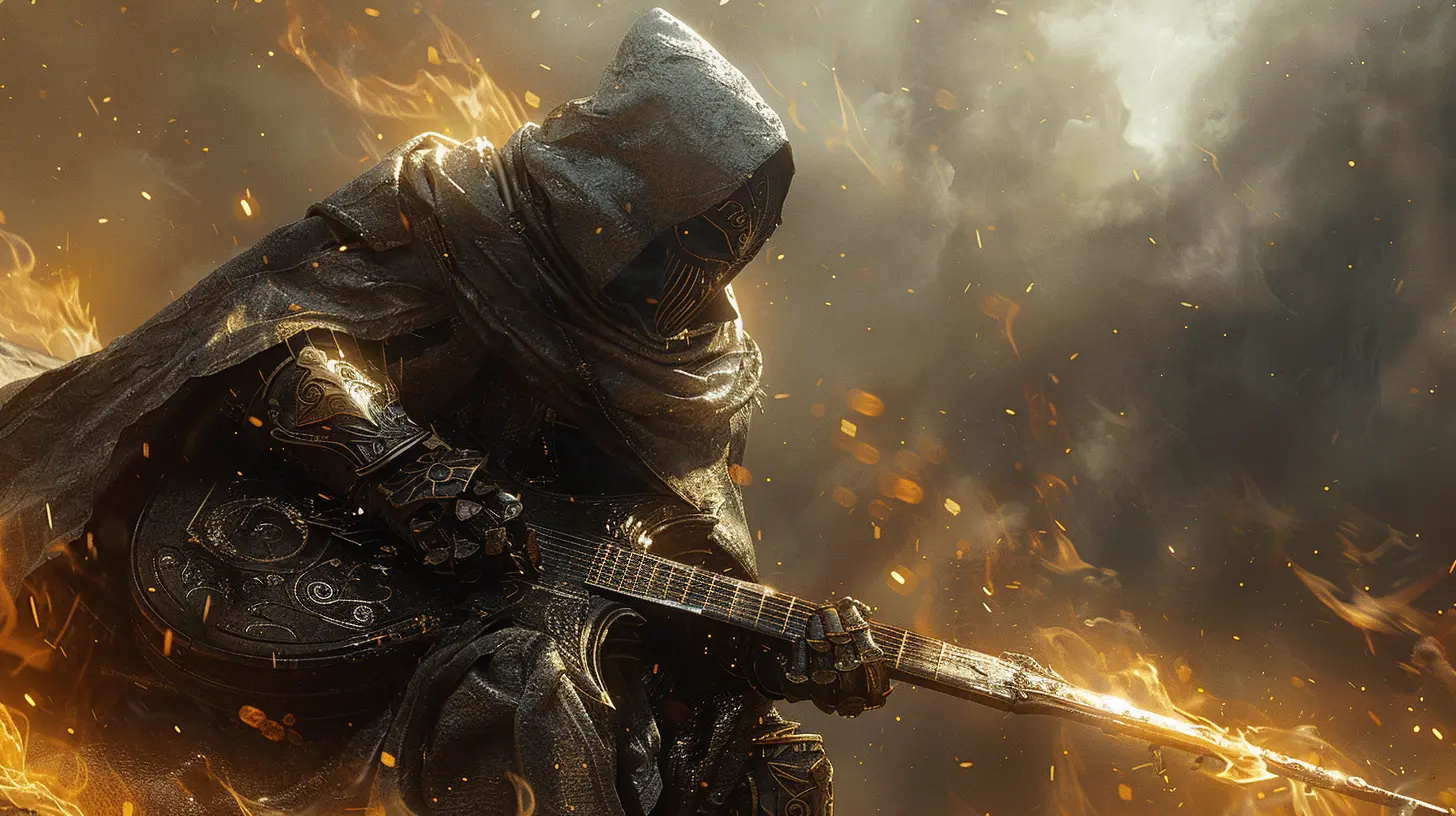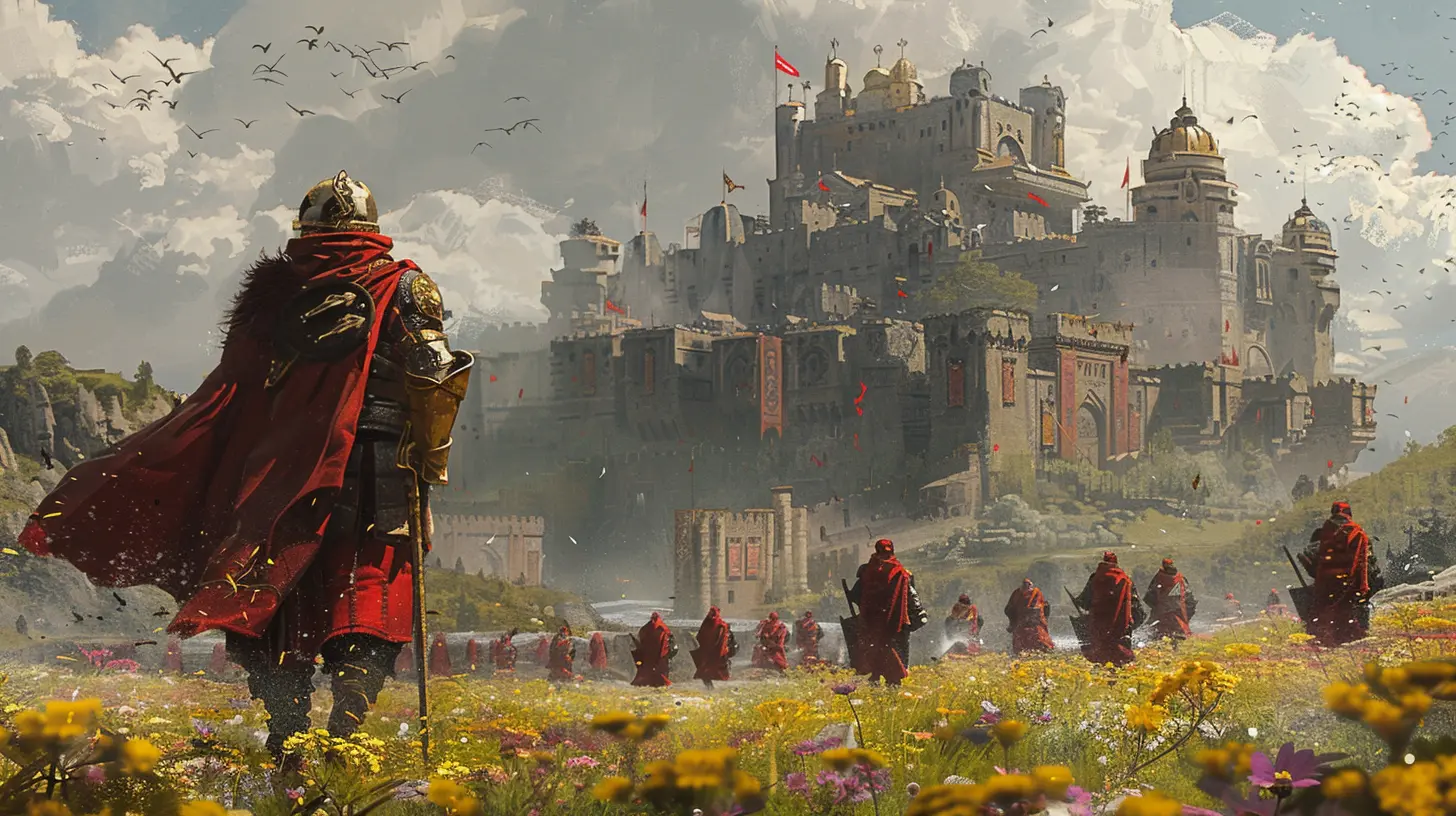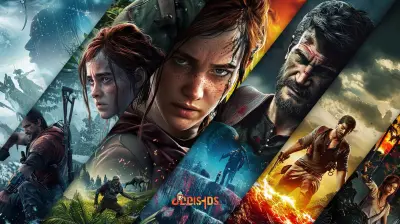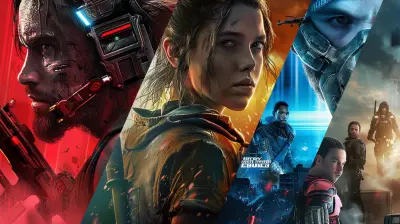The Role of Music in Enhancing Quest Experiences
2 November 2025
When you think about the most memorable moments in your favorite games, what pops into your head? Is it the epic battle against a boss? The unexpected plot twist that nearly made you drop your controller? Or maybe—just maybe—it’s that chill-inducing, goosebump-raising soundtrack playing in the background?
Yep, we're talking about music in video games. And not just any music, but the powerful, emotional, story-pushing kind that makes you feel like you're in the game. Today, we’re diving deep into the role of music in enhancing quest experiences. Whether you’re slaying dragons, solving mystery puzzles, or sneaking through enemy territory, music shapes the journey in ways we often don’t even realize.
Let’s press play and dig in.
What’s the Big Deal About Music in Games Anyway?
Imagine watching a movie with no music. Awkward, right? Now, apply that to gaming. Music isn't just background noise—it’s a mood-setter, an emotional anchor, and sometimes your only clue that something big is about to go down.Music in quests turns an ordinary fetch mission into a heroic journey. It builds tension, fuels excitement, and guides your emotions without a single line of dialogue. In fact, a well-scored moment can make or break your gaming experience.
Without music, games would feel…flat. Like a sandwich with no filling. Sure, it’s still a sandwich, but who wants that?
How Music Sets the Mood for Adventure
Let’s start with the basics—tone and atmosphere. One of music’s biggest jobs in quest-based games is to set the emotional stage.1. Building the World’s Personality
Different types of music immediately tell you what kind of place you’re in. A light, whimsical track might signal a peaceful village where you can relax, shop, or chat with NPCs. On the flip side, eerie ambient sounds suggest that danger is lurking nearby.Take “The Elder Scrolls V: Skyrim,” for example. The sweeping orchestral score immediately pulls you into a world of ancient ruins and fierce dragons. It’s not just music—it’s a call to adventure.
2. Establishing Emotional Context
You’re deep into a story quest. Suddenly, the music shifts from playful to somber. Even before the dialogue changes, you feel something’s about to go down. That’s musical foreshadowing at its finest.Games like “The Legend of Zelda” series master this. One moment you're vibin’ to the peaceful village theme, and the next, a haunting melody warns you of impending doom.
The genius here? You're emotionally prepared before your brain fully catches up. Like your heart knows it before your mind does.
Enhancing Immersion Through Interactive Soundtracks
Here’s where things get really clever.1. Dynamic Music That Reacts to Your Actions
Ever notice how music ramps up when enemies appear, then fades back down once things calm? That’s dynamic music design. It’s like the game is scoring your personal movie in real time.Titles like “Red Dead Redemption 2” do this beautifully. Ride into a town? The music subtly shifts. Start a firefight? It explodes with intensity. Finish a quest? A soft guitar might strum, making you feel like the ultimate cowboy.
This responsiveness doesn’t just sound cool—it keeps you glued to the screen. You’re not just playing the game. You’re living it, moment by moment, beat by beat.
2. Adaptive Music and Quest Progression
Some quests feature adaptive music that evolves as you do. Early on, you might hear a simple tune. As you level up, discover lore, or approach the climax, that same tune becomes richer, more layered, and emotionally intense.It’s like the music is growing with you.
A great example? “Final Fantasy XV.” You’ll hear recurring motifs throughout your journey—but they’re never quite the same twice. That evolving soundtrack mirrors your character’s growth, making each moment feel earned.
Emotional Storytelling Without Saying a Word
Ever cry during a game? Don’t lie—I know I have. And while the writing and visuals deserve credit, the music often does the heavy lifting.1. Music Fills in the Narrative Gaps
Sometimes, a scene doesn’t have words. Maybe a character has died, or there’s a big reveal, and silence would feel too empty—but dialogue would be overkill.This is where music steps in and does something magical: it speaks your emotions for you.
Journeys in games like “Journey” (how on the nose, right?) or “Ori and the Blind Forest” are practically wordless, yet they're overflowing with emotional weight. Why? Because the music fills in the blanks.
2. Theme Reinforcement and Character Bonds
Recurring musical themes tie characters and stories together. Think of them like emotional bookmarks. Every time you hear that melody, you remember all the feelings, trials, and triumphs connected to it.In “Mass Effect,” character motifs deepen your connection with the crew. In “The Witcher 3,” the haunting Skellige theme instantly transports you back to those windswept cliffs, even years later.
That’s the power of musical memory. It etches those experiences into your brain like a favorite song from high school.
Multiplayer Quests and Shared Musical Energy
Okay, let’s switch gears a bit. We’ve been talking a lot about single-player experiences. But what about co-op or multiplayer games? Does music matter there too?Absolutely.
1. Establishing Team Synergy
In games like “Destiny 2” or “Monster Hunter: World,” shared music motifs keep everyone on the same page. That boss battle theme? It's not just noise—it’s a team-wide adrenaline booster. It gets everyone hyped and in sync.Imagine raiding a dungeon in silence. Kinda awkward, right?
Now, add a swelling orchestral track as your squad charges into battle. Suddenly, it’s a movie moment—and you’re the star.
2. Building Community Identity
Over time, music becomes part of a game’s cultural DNA. Players associate certain tracks with in-game events, seasons, or expansions. Like how Christmas music brings a flood of memories, these tracks trigger nostalgia and unity among the player base.Remember the first time you heard Vault of Glass in “Destiny 1”? Yeah, it's like that.
Custom Soundtracks & Player Experience
Some games let you choose your own music. Does that ruin the atmosphere?Not necessarily. In fact, it can enhance it—if done right.
1. Personalized Vibes for Replayability
When you’ve played a game multiple times, mixing in your own tunes can keep things fresh. Maybe you swap out the default quest theme with your favorite battle playlist. Suddenly, the whole quest feels new again.Games like “Tony Hawk’s Pro Skater” nailed this by integrating iconic licensed tracks with gameplay. It wasn’t just skating—it was skating with an attitude.
2. Player-Controlled Narratives
Custom music lets you inject your own story into the gameplay. It's like choosing the soundtrack to your own life. You’re not just completing quests—you’re curating them.Just be careful—use the wrong song at the wrong time and, well, that emotional boss fight might just feel like a karaoke party gone wrong.
The Future of Music in Quests: Smarter, Deeper, Better
With tech getting more advanced, the future of music in gaming looks wild.1. AI-Driven Adaptive Soundscapes
Games are starting to use AI to generate music on the fly, based on your play style. Creeping through a forest like a stealth pro? The music will echo your subtlety. Go full chaos mode in combat? Boom—epic percussion drops.It’s procedural music with emotional intelligence. And it’s coming fast.
2. VR and 3D Audio Integration
As VR grows, so does the importance of spatial audio. In a full-immersion setup, music will not just play—it’ll exist around you. Hear a battle drum echo in the distance? That’s your quest calling.Music will become a compass, a guide, and a storyteller all in one. We’re entering a future where music isn’t just heard. It’s experienced.
Final Thoughts: Don’t Just Hear the Game—Feel It
Music in games isn’t an afterthought. It’s the soul of the experience—especially in quest-driven adventures. It carries the emotional weight, sets the tone, and makes those major moments unforgettable.Next time you’re on a quest, pause for a second. Listen. Feel. That soundtrack isn’t just filling space. It’s telling your story—one note at a time.
So, what’s your favorite in-game music moment? That time victory never felt sweeter, or heartbreak hit harder, all because of just the right song? Yeah, music did that.
Keep questing, and keep listening.
all images in this post were generated using AI tools
Category:
Quests And MissionsAuthor:

Lana Johnson
Discussion
rate this article
1 comments
Jamie Tucker
This article insightfully explores how music amplifies the emotional impact of quests in video games. By creating immersive soundscapes, it enhances storytelling and player engagement. The connection between melody and narrative progression fosters a deeper connection to the game world, making each quest a memorable adventure. Great read!
November 3, 2025 at 3:30 AM


